

I WAS BORN in Minnesota and grew up in a neighborhood with and went to school with predominantly white kids and families. I spent a lot of summers in India, going every year or every other year, up to me being about sixteen, and I lived for a year in Dehradun when I was seven. We did not learn a lot about Indigenous cultures in school. Even though Minnesota has a huge Native community, it was really erased. I think I was in second grade or something, when an Indigenous man came to talk to our class and I had several of my classmates ask me if that was my dad. I think that stuck with me because, clearly no, he wasn't. Everybody knew I was Indian, but I think they didn't understand what that meant.
she/they
*These are my thoughts as of November 2020. I could feel differently in a couple of months or a year because my understanding of my identities is going to be ever-changing, I will always be learning new things.
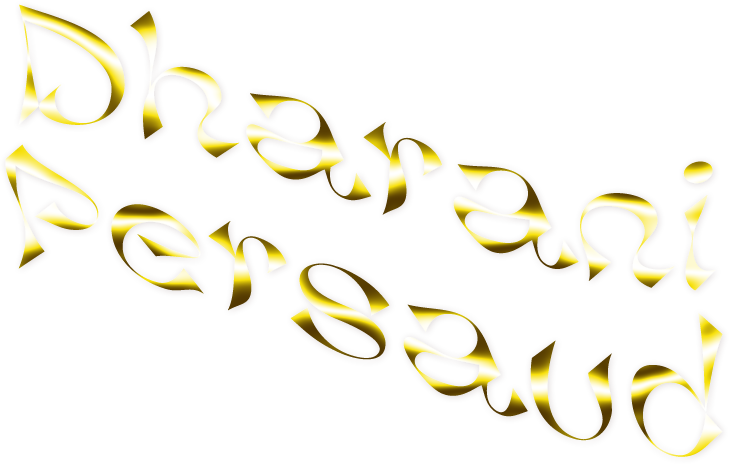
> In that moment I became aware that my Indian identity was white kids not having an understanding of what Indian meant versus what American Indian meant. It made me realize and grapple with what I, as a person with melanin, am in this country.
MY MOM MOVED straight from Guyana to Minnesota when she was five or six with her older sister and my grandparents. My dad went from Guyana to Barbados, lived there for a year, and then his mom and sister and him moved to England. Eventually, once my mom and dad got married, they ended up coming back to Minnesota because I think that was what my mom knew and there was some amount of community here already.
My mom's dad was from Punjab and he came to Guyana as a Hindu missionary, which is where he met my grandmother. When they got married, patriarchal power played a huge part in my nana and nani’s marriage and my nana didn’t promote his kids learning about Guyanese culture from my nani. And so my mom and her siblings grew up in a pretty Indian household. They ate Indian food. They really didn't know anything about Guyanese food and culture and stuff like that. And so all of the Indian cultures and customs and specifically Hinduism was passed down to me through my grandfather and my mom.
me and my Nani on her birthday in front of the first black cake I've made
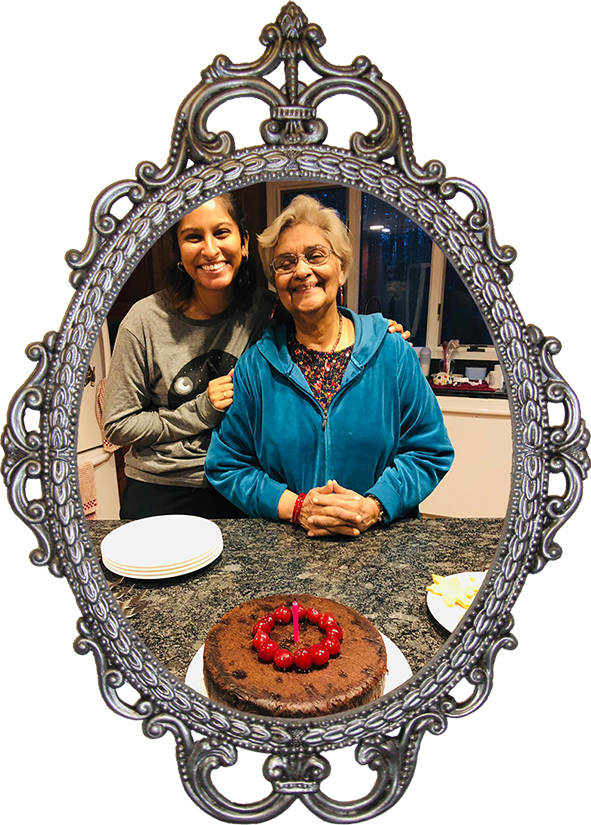
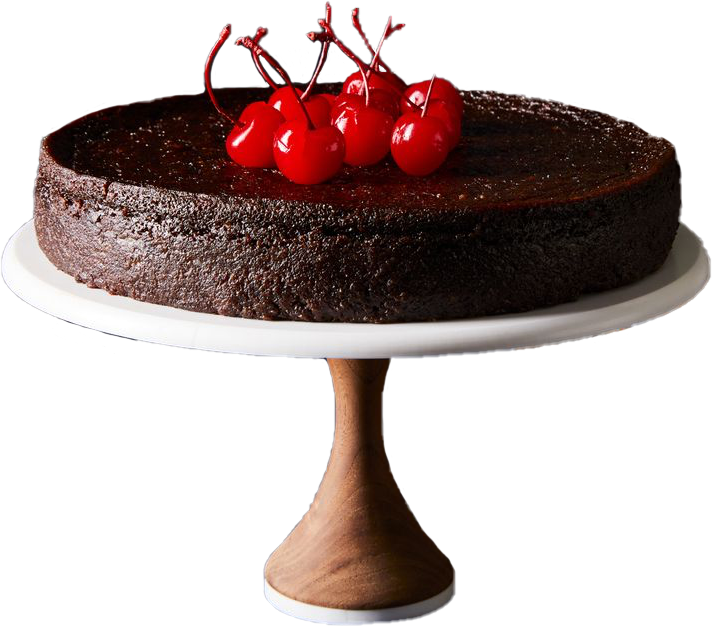
> There's a belief in Indo-Caribbean circles that as a result of indenture being an 'equalizer,' caste no longer exists in the Indo-Caribbean community, which is not true. It just shows up in different ways.
So in learning about my own Indian caste privilege (passed down through my maternal grandfather), I'm researching the caste murkiness in the rest of my ancestry. I’ve also had to really reckon with my Hinduism. Now, I don't honestly even know if I identify as Hindu anymore because of the extremely oppressive history and extremely oppressive present.
It was only once I was in college, or around that age, that I became more aware that my family members, especially on my dad's side, were not really Indian. My dad's family had started a restaurant in Georgetown, the capital of Guyana, and he would go there sometimes, but he never really made a big deal out of it. Also in college I realised I wasn’t able to connect with South Asians who’d directly descended from South Asia: despite visiting India, I wasn’t necessarily immersed in Indian culture or even food. So that’s when I was kind of like, OK, there's something else going on here and I want to know what it is.

AS I HAVE learned more about my Caribbean identity, I feel like it’s important to find ways to connect it with my queerness, because otherwise I feel like I'm erasing a part of myself. I've been trying to situate my queerness in history and what that means, if I were to still be living in Guyana, for instance, or if I had queer ancestors, which I have absolutely no idea if I did, because their stories are probably silenced or erased in some way. So if I deepen one understanding, I have to go and deepen the other so I can keep them on parallel paths.
Within Caribbean spaces, queerness is not really accepted and I think it's been interesting trying to find ways to connect with my Caribbean heritage while also incorporating queerness. And so outside of my family, because I obviously can't change that, I have been deliberate in making sure that the Caribbean people I connect with either understand my identities or also share my identities.
MY MATERNAL GRANDFATHER means that I have a direct connection to Punjab and so I don't think I would ever stop identifying as South Asian, but a lot of Indo-Caribbean people have no desire to and do not identify as South Asian at all. It’s interesting because there’s definitely a dynamic of South Asians (mostly Indian) looking down on those with indentured ancestry (if they even know we exist at all - I’ve had to explain the history of indenture to a lot of people and that's not fun).
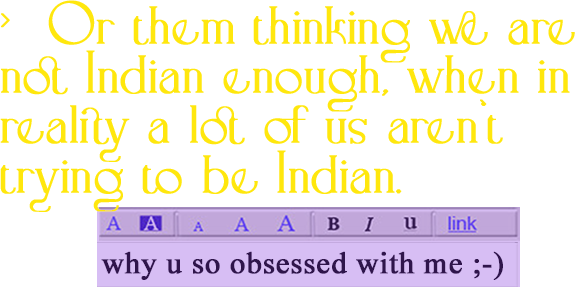
DHARANI PERSAUD (she/they) is a writer, organizer, and archival enthusiast. They have publications in Hobart, Kajal Magazine, 2040 Review, and Brown Girl Magazine, and they’re an archivist and co-creator at Ro(u)ted By Our Stories, an intergenerational oral history archive dedicated to capturing, preserving and sharing the stories of the Indo-Caribbean diaspora’s silenced voices. You can explore their work here.

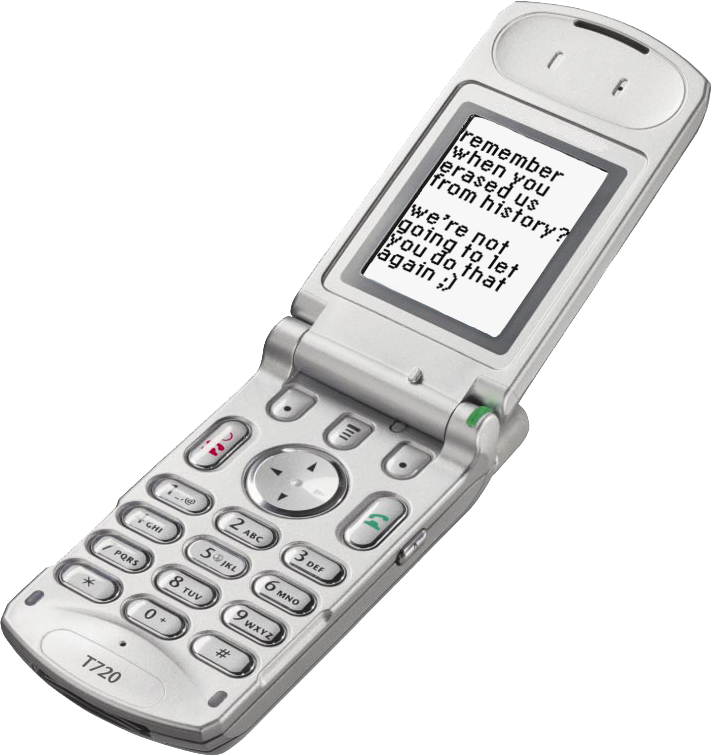
I've found that South Asians who have been harmed by brahminical supremacy are who I often feel the most kinship with, as they understand what it's like to not be part of the dominant culture. Because US immigration laws directly benefited caste-privileged South Asians (as they often have higher education/financial means) there are a lot of upper-caste, north Indians in the US and as a result the dominant South Asian culture in the US is that of upper-caste, Hindu, north Indian. That power dynamic is something that I still struggle with. I can't not be Indian because of my grandfather, but I think if I didn't have that connection, I wouldn't necessarily consider myself as South Asian as I do.
FORMAL HISTORY IS often written by straight white men, even when it comes to places like the Caribbean, so I’ve really appreciated working with and listening to oral histories. While there are some people who share my identity in those oral histories, they also experience the world differently and that has helped me feel less alone in my Caribbean and queer identities. Knowing that there are people who are my age, who are queer and also Caribbean and also have other marginalized identities, and being able to hear those stories and listen to what their childhoods were like and stuff like has helped me visualize and build a community of identities outside of just me. And I think that has been very validating.
